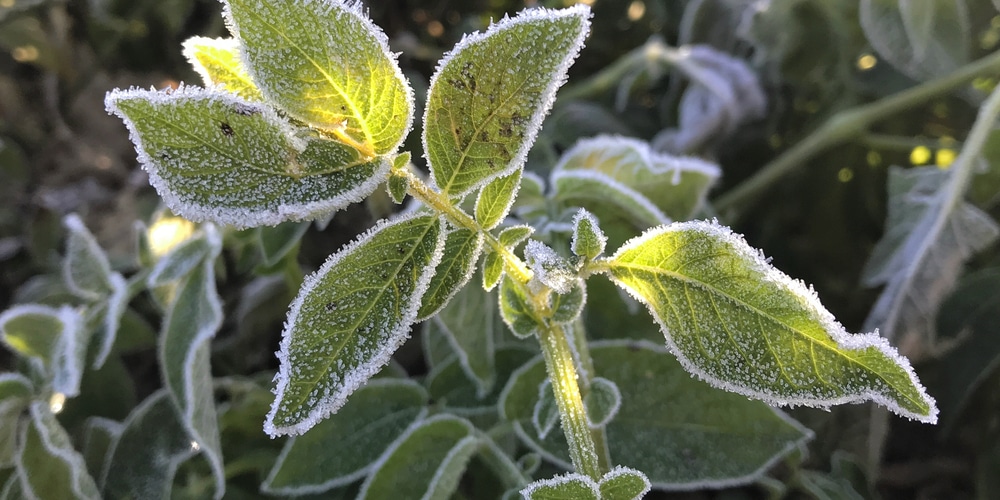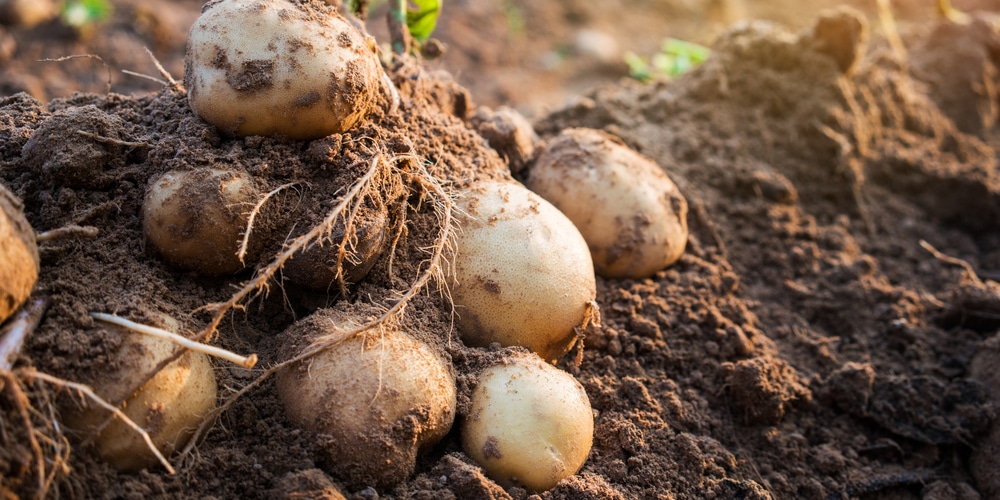There is something oddly enchanting about growing potatoes. Maybe it’s the satisfaction of pulling fresh, earthy potatoes from the soil yourself. Or perhaps it’s the challenge of getting them to grow in climates where they’re not typically found.
Having fresh potatoes to harvest straight from your garden is a fantastic feeling. When stored properly, potatoes can last for months. This means that you can enjoy home-grown potatoes even during the winter months!
Can You Grow Potatoes in Winter?
Technically, yes. Growing potatoes during the winter months is possible given that they have a sufficient light source and protection from the cold weather. Light is essential for photosynthesis, which potatoes need to grow.
During the winter months, days are shorter, and there is less natural light available. This is why it’s important to give your potatoes a boost with artificial lighting.
In Southern parts of the States, where the winters are warmer, potatoes can be grown outdoors. However, in areas with colder winters, growing them indoors is an ideal solution, next to having a heated greenhouse if you have one.
Aside from the outdoor temperature being a factor, potatoes also need to be protected from frost. This means that you’ll need to take extra care when watering your potatoes so that the water doesn’t freeze and damage the plants.
Additionally, there are some potato varieties that are better suited for winter growing than others. For example, Yukon Gold potatoes are a good choice because they’re hardy and have a relatively short growing season. In contrast, Russet potatoes are not as well suited because they require a longer growing season.
How to Grow Potatoes in Winter
Simply said, growing potatoes in winter is possible, but it takes careful planning and consideration to be successful. Here are some tips:
Choose the Right Variety
Potato varieties with an early season or short-season maturity are best suited for winter growing. This is because they don’t require as much time to mature and will be ready for harvest before the coldest weather sets in.
Give Them Light
Placing them near a south-facing window or using grow lights will give your potatoes the light they need to grow.
Plant at the Right Time
Potatoes need to be planted in late summer or early fall so that they have time to mature before the cold weather sets in. For those with colder winters, it may be necessary to start them indoors and then transplant them outdoors later on.
Water Carefully
Be sure to water your potatoes carefully so that the water doesn’t freeze and damage the plants.
Use Mulch
Mulching your potatoes with straw or hay will help insulate them from the cold weather and protect the roots from frost damage.
Keep an Eye on Them
Potatoes grown in winter will need to be monitored more closely than those grown in other seasons. This is because they’re more susceptible to frost damage and disease. Be sure to check on them regularly and take steps to protect them from the cold weather.
Harvest Before the First Frost
Be sure to harvest your potatoes before the first frost hits. This will help to prevent them from being damaged by the cold weather.
Protect Your Potatoes from Frost
During those cold winter months, it’s important to protect your potatoes from frost. Using straw or hay as a mulch will help insulate them from the cold and prevent frost damage.
Other ways to shield them from the cold include covering them with a tarp or placing them in a cardboard box.
Alternatively, you may also use deeper pots to grow your potatoes and then place them indoors near a south-facing window.
Can you grow potatoes in winter: Final Thoughts
With a little bit of care and attention, you can successfully grow potatoes in winter and have a good harvest! These tips will help you get started.
Give it a try and see for yourself how satisfying it is to harvest fresh, home-grown potatoes during the colder months. Who knows, you may even find that you enjoy it more than growing them in the summer!


